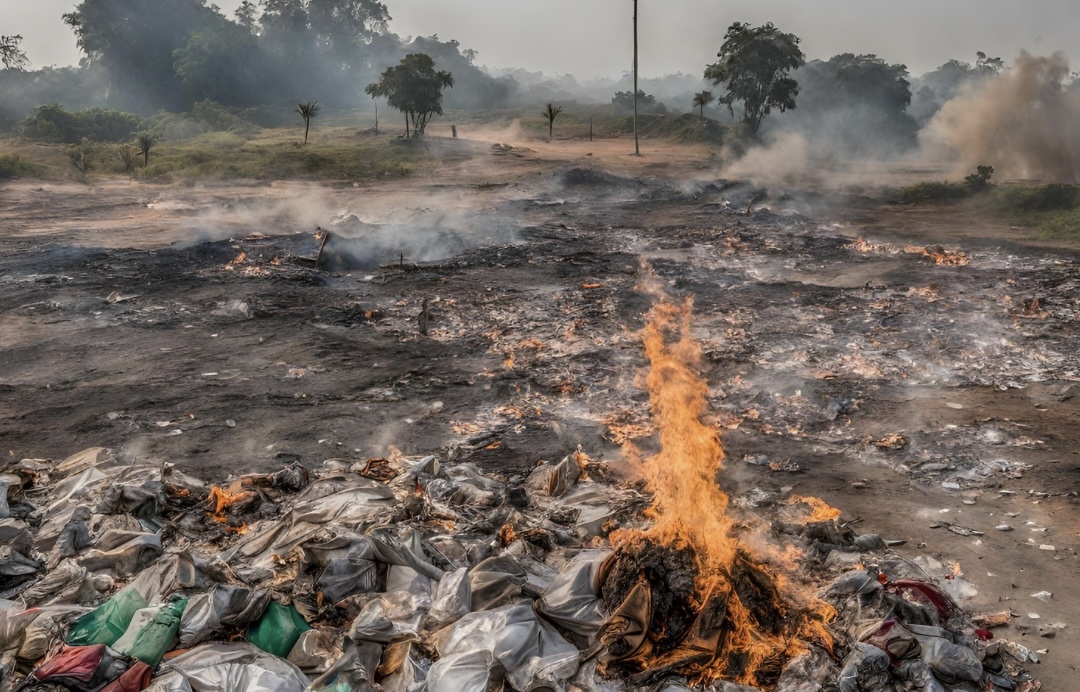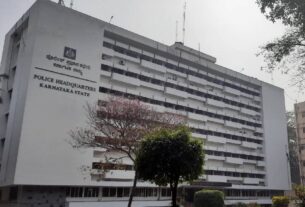Despite fines and regulations, illegal burning plagues the Bengaluru neighbourhood
Residents of Begur in Bengaluru suffer from constant coughing, breathing difficulties, and bronchitis risks as garbage burning persists, despite a ban.
Residents have voiced their distress over the persistent problem of garbage burning and its adverse impact on their well-being. Sunitha Raju, a long-time resident, expressed her concerns, and said, “the air quality in Begur has deteriorated significantly due to continuous garbage burning. It’s distressing to experience constant coughing, difficulty in breathing, and headaches, especially for vulnerable groups such as children and the elderly.”
Rajesh echoed similar sentiments, highlighting the urgency of addressing the issue. “Despite the government’s regulations and awareness campaigns, some individuals continue to burn garbage indiscriminately, disregarding the health and environmental repercussions of their actions. Immediate measures are imperative to address this pressing issue and safeguard our community’s health,” he emphasized.
By a 2017 notification by the Karnataka government, open burning of garbage is prohibited under the Air (Prevention and Control of Pollution) Act 1981.
The Karnataka State Pollution Control Board (KSPCB) had proposed penalties of up to Rs 5 lakh or five years imprisonment, or both, under section 19(5) of the Air (Prevention and Control of Pollution) Act 1981 to deter burning garbage, leaves, or twigs in open spaces, aiming to prevent health hazards. However, the persistence of garbage burning in Begur remains a concern.
The World Health Organization (WHO) guidelines emphasize that the annual average concentration of PM2.5 should not exceed 10 micrograms per cubic meter (µg/m³) to mitigate health risks associated with air pollution. However, the rampant instances of garbage burning in Begur have propelled PM2.5 levels beyond this threshold, posing significant health risks to the local population.
Dr. Deepika T., a local physician, shed light on the health implications of prolonged exposure to PM2.5 pollution resulting from garbage burning. “The inhalation of fine particulate matter emitted during garbage burning can lead to a range of respiratory ailments, including asthma exacerbation, bronchitis, and respiratory infections. Additionally, PM2.5 exposure is associated with cardiovascular diseases and may exacerbate pre-existing health conditions.”
H. Bhimesh, an official from the Solid Waste Management (SWM) department of the Bruhat Bengaluru Mahanagara Palike (BBMP) said that regular patrols are carried out to stop littering and burning garbage. However from 2019 to 2023, over 11 lakh SWM offences were recorded, resulting in Rs. 29 crore in penalties. However, no effective actions have been taken to reduce these problems.
Dr. Rohini Balasubramanian, sustainability and climate change expert said, “Garbage burning not only contributes to elevated levels of PM2.5 pollution but also emits a cocktail of hazardous pollutants, including carcinogens and neurotoxins, posing grave health risks to the population. Sustainable waste management strategies, coupled with stringent enforcement of anti-burning regulations, are imperative to mitigate this environmental menace and safeguard public health.”




